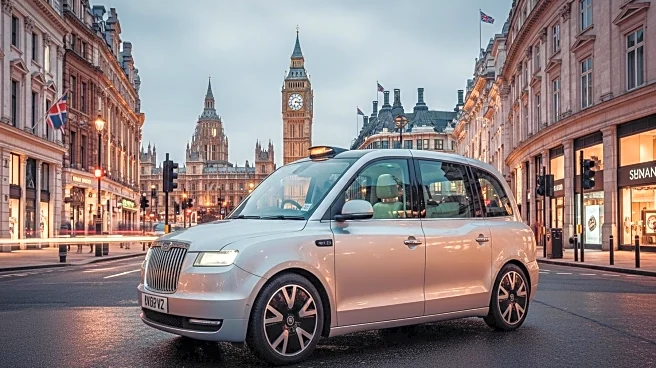What's Happening?
Waymo, a pioneer in the robotaxi industry, has announced plans to expand its driverless taxi service to London by 2026. The company will begin testing its self-driving cars on London streets in the coming weeks, initially with a human safety driver behind
the wheel. This move is part of Waymo's strategy to secure government approval for its services in the UK. The company has been operating its self-driving taxis in several U.S. cities, including Phoenix, San Francisco, Los Angeles, Atlanta, and Austin. Waymo's expansion into London follows its recent international testing efforts in Japan, although no commercial launch date has been set there. The company, originally a secret project within Google, will need to comply with new UK regulations for self-driving cars, which require safety standards comparable to those of careful human drivers.
Why It's Important?
Waymo's expansion into London represents a significant step in the global adoption of autonomous vehicle technology. By entering the UK market, Waymo is positioning itself as a leader in the international robotaxi industry, potentially influencing transportation policies and regulations. The introduction of driverless taxis could transform urban mobility, offering a new mode of transportation that reduces reliance on human drivers and potentially decreases traffic congestion. This development may also stimulate advancements in related technologies, such as AI and machine learning, as companies strive to meet stringent safety standards. The move could impact traditional taxi services and ride-hailing companies, prompting them to innovate and adapt to the changing landscape.
What's Next?
Waymo will engage with local and national leaders in the UK to secure the necessary permissions for its commercial ride-hailing service. The company will participate in a pilot program for small-scale self-driving taxi and bus services planned for spring 2026. Waymo must adhere to regulations set by Transport for London, which oversees licensing for taxi operators. As Waymo progresses, it will likely face scrutiny from regulators and the public regarding safety and operational standards. The success of Waymo's London expansion could pave the way for further international growth, potentially leading to more widespread adoption of autonomous vehicles in other cities and countries.
Beyond the Headlines
The expansion of Waymo's driverless taxi service into London could have broader implications for urban planning and environmental sustainability. Autonomous vehicles may contribute to reduced emissions and improved air quality by optimizing routes and reducing idle times. Additionally, the integration of self-driving technology into public transportation systems could enhance accessibility for individuals with mobility challenges. Ethical considerations, such as data privacy and the impact on employment in the transportation sector, will need to be addressed as the technology becomes more prevalent.














